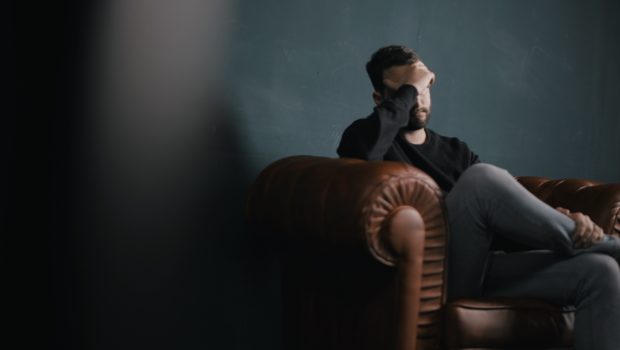What causes anxiety, and Can anxiety treatment completely vanish it?
Did you know that anxiety is a completely normal feeling? Yes, everyone feels anxious every now and then. Anxiety is one way of your brain alerting you to potential danger ahead as well as reacting to stress. You can visit druggenius.com for a complete guide to relieving stress & anxiety.
For instance, you may feel anxious before a test, as you’re making an important decision, or when faced with a huddle at work. But in as much as occasional anxiety is normal, an anxiety disorder isn’t. In any case, anxiety disorders are types of mental illnesses that bring about overwhelming and constant anxiety as well as fear.
Research shows about 31.1% of adults in the US suffer an anxiety disorder at one point in their lives. And as you may know, anxiety disorders can make you shy away from school, family get-togethers, work, and any other situation that might anxiety symptoms.
So…
What Causes Anxiety?
The American Psychological Association (APA) describes anxiety as “the emotion characterized by worrying thoughts, feelings of tension, and physical changes such as increased blood pressure.” With that said, knowing how to differentiate between anxiety disorders and normal feelings of anxiety will go a long way in helping identify what has triggered your condition and how to best treat it.
All the same, here are common causes of anxiety disorders:
1. Environmental Factors
It’s important to note that elements within the environment around you can push your anxiety from normal to a disorder. Stress from work, school, personal relationships, finances, etc. are some of the biggest contributors to anxiety disorders. Even travelling to high altitude areas with low oxygen levels can cause anxiety symptoms.
2. Genetics
You’re more likely to develop an anxiety disorder if there’s a history of the disease in your family lineage.
3. Medical Factors
Some medical conditions can lead to anxiety disorders either as symptoms of a particular disease, stress from underlying medical conditions or even as side effects from some medications.
4. Brain Chemistry
As you know, some traumatic or stressful experiences can alter brain function and structure causing you to react to anxiety triggers that wouldn’t previously have caused anxiety. In fact, neurologists and psychologists consider mood disorders and anxiety to be disruptions to electrical signals and hormones in the brain.
5. Drug Use and Withdrawal
Substance-induced anxiety is a type of anxiety caused by taking or stopping a drug. You see, the brain creates chemicals affecting actions, emotions, and thoughts. Without the proper balance of these chemicals, you’re likely to change the way you act, think, and feel. Now, some drugs affect these chemicals leading to anxiety.
Medicines and drugs that can induce anxiety disorders include:
- Illegal drugs such as LSD, cocaine.
- Alcohol
- Prescription drugs such as steroids, stimulants, as well as medicines to treat Parkinson’s disease, thyroid problems, and asthma.
- Caffeine
6. Heart Problems
Research shows that one-third of people who suffer from a heart attack tend to develop anxiety symptoms like shortness of breath and heart palpitations later. What’s more, these symptoms are more common in women and can last for a year or more.
Take note that some anxiety disorders may occur without any external stimuli of any kind. Additionally, you can suffer disproportionate anxiety due to a combination of some of the anxiety causes aforementioned here. For instance, stress at home (or work) may cause you to take illicit substances or alcohol, thus increasing your anxiety levels.
It’s also worth mentioning the different types of anxiety. Because if you can diagnose your anxiety, you can easily figure out its cause. As such, common anxiety disorders include:
- Generalized anxiety disorder- involves excessive and persistent worry about everyday things such as family health, job responsibilities, and even minor issues like car repairs, chores, and appointments. A general anxiety disorder may come with physical symptoms such as muscle tension, feeling easily fatigued or on edge, restlessness, problems sleeping, as well as difficulty in concentrating.
- Panic Disorder- Characterized mostly by recurrent panic attacks together with psychological and physical distress.
- Phobias- A phobia is basically a persistent and excessive fear of something that isn’t really harmful. In any case, people who suffer from phobia anxiety tend to recognize that their feelings are excessive, but they just can’t control them.
- Agoraphobia- Agoraphobia is an anxiety disorder characterized by the excessive fear of being in scenarios whereby escape may be embarrassing or difficult, or where help isn’t readily available in case of panic symptoms. If you have agoraphobia, you likely feel fear being outside your home alone, being in enclosed spaces, using public transportation, or being in a crowd.
- Social Anxiety Disorder- Anyone with social anxiety disorder tends to feel significant discomfort and anxiety about getting humiliated, embarrassed, rejected, or looked down upon in social situations.
- Separation Disorder- Characterized by being persistently worried about losing those close to you.
Luckily, there are several anxiety disorder treatment options for those suffering from the disease. Which makes you wonder…
Does Anxiety Disorder Treatment Fully Eliminate Anxiety?
The truth is that anxiety never really vanished forever. You see, it’s an emotion like any other that you have- happiness, frustration, sadness, love, anger, etc. These are emotions your brain never eliminates once and for all. However, family therapy Los Angeles can help you deal with this issue in a better way.
What anxiety disorder treatment help you do is manage your anxiety. Think of anxiety like a big person living in your head. He (or she) is constantly shouting your worries and anxious thoughts in there. Now, with treatment, this person shrinks to become a tiny little speck. So his yells get reduced to whisper and you can’t hear the things he’s shouting any more.
In any case, anxiety disorder treatment will help you take control of your anxiety by helping you to:
- Pinpoint what’s causing you anxiety
- Identify your anxiety’s triggers
- Understand your feelings, emotions, and thoughts
- Learn how to deal with anxiety in real-time
- Learn how to reduce the severity and frequency of your anxiety
All the same, you can manage your levels of anxiety on any given day by:
I.Outsmarting your Brooding ways
This involves controlling your inner dialogues so you can reduce the worries and fears. You may need to re-wire your thoughts to suppress your anxiety.
II.Adopting Better Behavioural Strategies
One thing is for sure, you can’t manage your anxiety if you can’t recognize it. As in, you’ll become more confident, clear, and calm by first paying attention to your feelings. Now, some behavioural strategies that can help you deal with anxiety include:
- Meditating to promote mindfulness
- Being in the present
- Working on tasks early and faster to avoid falling into the perfectionist trap.
III. Adopting Healthy Lifestyle Habits
Breathing slowly and deeply, drinking more water, and sleeping enough are some of the habits that will help keep you calm, even in potentially dangerous situations. Take note that adults (26-64 years) ought to sleep for 7-9 hours, older adults (65+) 7-8 hours, and young adults (18-25) 7-9 hours.
Bottom line? You can minimize anxiety by overcoming your worries every single day. Write down a worry list and see the items on the list as problems to get solved daily using the techniques mentioned above.
In Summary
Anxiety isn’t inherently bad. It only becomes a problem when it’s too much to handle. In fact, appropriate levels of anxiety can motivate you like nothing else.
But if your anxiety is making your life unhealthy and dysfunctional, don’t hesitate to seek medical advice. The various anxiety disorder treatment options do work.
Photo by Nik Shuliahin on Unsplash
















